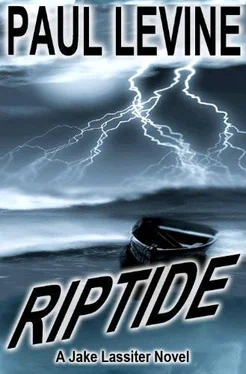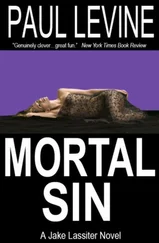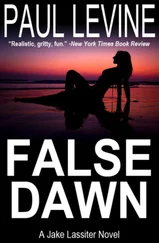Paul Levine - Riptide
Здесь есть возможность читать онлайн «Paul Levine - Riptide» весь текст электронной книги совершенно бесплатно (целиком полную версию без сокращений). В некоторых случаях можно слушать аудио, скачать через торрент в формате fb2 и присутствует краткое содержание. Жанр: Криминальный детектив, на английском языке. Описание произведения, (предисловие) а так же отзывы посетителей доступны на портале библиотеки ЛибКат.
- Название:Riptide
- Автор:
- Жанр:
- Год:неизвестен
- ISBN:нет данных
- Рейтинг книги:3 / 5. Голосов: 1
-
Избранное:Добавить в избранное
- Отзывы:
-
Ваша оценка:
- 60
- 1
- 2
- 3
- 4
- 5
Riptide: краткое содержание, описание и аннотация
Предлагаем к чтению аннотацию, описание, краткое содержание или предисловие (зависит от того, что написал сам автор книги «Riptide»). Если вы не нашли необходимую информацию о книге — напишите в комментариях, мы постараемся отыскать её.
Riptide — читать онлайн бесплатно полную книгу (весь текст) целиком
Ниже представлен текст книги, разбитый по страницам. Система сохранения места последней прочитанной страницы, позволяет с удобством читать онлайн бесплатно книгу «Riptide», без необходимости каждый раз заново искать на чём Вы остановились. Поставьте закладку, и сможете в любой момент перейти на страницу, на которой закончили чтение.
Интервал:
Закладка:
The sergeant pulled out a vinyl-covered notebook. “Well, what the fuck are these things anyhow?” That was as good a place as any, so Jake Lassiter told him to think of Mr. Kazdoy as a lender who gives five thousand dollars to, say, the city of Jacksonville to help build a sewage plant and the city agrees to repay him over twenty years at 8 percent interest, four hundred dollars a year, payable two hundred bucks a pop, every December 1 and June 1, then at the end of twenty years, he gets back the five grand. In the meantime, he pays no taxes on the interest payments.
“I built a box factory in Jacksonville once,” Kazdoy said to no one in particular. “Cost me nine million in 1958, would be worth forty million today, but I don’t own it.”
Lassiter looked toward his client, hoping the old man wasn’t losing his marbles along with the bonds. Then he turned back to the sergeant and explained that to get your two hundred bucks, you have to turn in a coupon at a bank. “A bond payable over twenty years will have forty coupons. What the burglars took would have been… what, Sam
… six or seven thousand coupons?”
“Never liked Jacksonville,” Kazdoy said. “More anti-Semites than Warsaw.” The old man wasn’t going to be much help.
Lassiter said, “A securities newsletter will alert all the local banks. But the coupons will more likely turn up out of the country, maybe in the islands at some doper bank good at money laundering. Problem is, these are negotiable securities, anybody can cash them.”
Violet Belfrey was trying hard not to show that she was paying attention, but if she kept filing her nails, she’d soon draw blood.
“If real pros masterminded this,” Lassiter concluded, “they already have a buyer, maybe in the Bahamas or Switzerland, or someone in organized crime, so they wholesale them for fifty cents on the dollar, let somebody else worry about dropping them at banks all over the country or all over the world.”
Now Samuel Kazdoy was coming alive. “Jacob, you get them back for me, boychik, one half is yours.”
The old man pulled himself off the sofa, struggled for a moment to gain his balance, and then stepped between Lassiter and the sergeant. He turned around, asserting control as he must have done in conference rooms for more than half a century. The events of the day still hung on his shoulders, but a brightness returned to his eyes.
“One half, Jacob. You got a good kop on your shoulders, I always said that. You can do it. Just like you got those momzers in Hollywood off my back. Just like you saved my driver’s license when the sons of bitches in Tallahassee said I was too old. You’re my friend, Jacob. You break bread with me and drink borscht with me, now find the bonds for me. If you can keep your mind off the shiksas for a while, you’ll figure it out.”
Carraway snapped his notebook shut. “Should have figured. We do the work, the lawyer gets the money.”
Kazdoy turned his attention to the sergeant. “Mis-ter Policeman, who do you think you are, some Cossack, you come in here and threaten me like there’s gonna be a pogrom. I been a friend of the mayor since he was a little pisher. You don’t want to help, he’s gonna hear about it.”
Sergeant Carraway swallowed hard and swung his bulk toward the broken door. “Fine with me. I gotta open a case number, but nothing says I gotta be a hero. Lassiter, call me when you got something to say.”
The sergeant left without promising to call for lunch. Lassiter looked around the office for another few minutes, then said his good-byes and headed down the stairs and out the fire door, opening it slowly, studying the latch. Nothing to see. He ran his hand over the mechanism, the little bolt that locks from the outside but slides open when the bar is pressed from inside.
Hullo! A tiny piece of silver duct tape, like you use to patch a torn sail, and the rest of the latch faintly sticky, like it was covered with the same tape but was torn off in a hurry. Okay, a guy doesn’t wait in a rest room all night, somebody tapes a door open for him. Just like Watergate — why not — most of those characters live in Miami anyway.
He stepped into the alley. No one had stolen his car, a canary yellow 1968 Olds 442, or sliced the canvas top in search of a tape player to exchange for a day’s ration of crack. Not that a slash and grabber would have found anything to sell. The car had no tape player, no CD, no cellular phone, and the radio was the original equipment: AM only.
The late-afternoon ocean breeze whipped discarded popcorn boxes against the building’s foundation and rattled the top of an aluminum garbage can. The temperature was dropping, and it was growing dark. Sliding into the bucket seat of the old beauty, Lassiter turned on the headlights. Then he got out, knelt into a catcher’s position and looked around. Crushed soda cans, candy wrappers, old newspapers. Street crud, nothing more. A mercury vapor light clicked on two buildings away, bathing the alley in a sickly green light. Then, something glared back from the pavement.
What the hell! He picked it up carefully, touching only the sides. A photograph, Violet Belfrey’s sharp face and round breasts. The photo was clean, everything else in the alley covered with grime. Couldn’t have been there long. If Carraway could see over his belly, maybe he would have found it.
Now what does Violet have to do with this? She was in the theater last night and could have taped the door. Lassiter leaned against his old convertible and thought about it. He felt a chill. It didn’t make any sense. Violet didn’t have to tape the door. She could have given anyone a key. Unless someone didn’t want to be seen walking through the front door after midnight. But the picture? Who would be so stupid as to leave a picture of one of the culprits at the crime scene, unless it was supposed to be found. Someone could be framing her, but who and why? He would give the picture to Carraway as a peace offering. If they didn’t drool over it first, the lab boys could dust it for latents.
Across the alley, an old woman wearing a tattered sweater used a cane to poke around in a dumpster behind a Burger King. Lassiter walked toward her, reached in his wallet for a ten-dollar bill and offered it, but she swatted at him with the cane. He got back into the car, turned the ignition, and listened to 455 cubic inches of rebuilt V-8 growl to life. He was low on gas — at eight miles a gallon, Arab sheikhs should send thank-you cards — and wondered if any stations in South Beach still carried high-test with lead. He flicked on the radio. The talk show host was bellowing at a caller, simultaneously questioning his patriotism, intelligence, and sexual preference. He turned off the radio and ran through all the facts, finishing with one that hit him square in the face. On December 1 — less than two weeks — the first coupons would become due. He would have to work fast, and it could all be for nothing. Even now the coupons could be in New York or La Paz or Grand Cayman.
But the coupons were not nearly so far away. They were in a cardboard box that once held Coca-Cola syrup in the storeroom of the Lincoln Road Grill three blocks west of the theater. And there, too, was Harry Marlin, a guy whose prayers would be answered if he could only figure out one thing — how to turn paper into gold.
CHAPTER 9
The phone message from Great Southern Bank said “Urgent,” but that did not necessarily imply a threat to the ozone layer, or even a mildly interesting problem. Thaddeus G. Whitney, the bank’s general counsel, might have called because a computer glitch foreclosed the wrong mortgage. Or another customer could have dropped a safe-deposit box on a big toe, or a trusted bookkeeper might have run off to Acapulco with the Christmas Club fund.
Читать дальшеИнтервал:
Закладка:
Похожие книги на «Riptide»
Представляем Вашему вниманию похожие книги на «Riptide» списком для выбора. Мы отобрали схожую по названию и смыслу литературу в надежде предоставить читателям больше вариантов отыскать новые, интересные, ещё непрочитанные произведения.
Обсуждение, отзывы о книге «Riptide» и просто собственные мнения читателей. Оставьте ваши комментарии, напишите, что Вы думаете о произведении, его смысле или главных героях. Укажите что конкретно понравилось, а что нет, и почему Вы так считаете.












